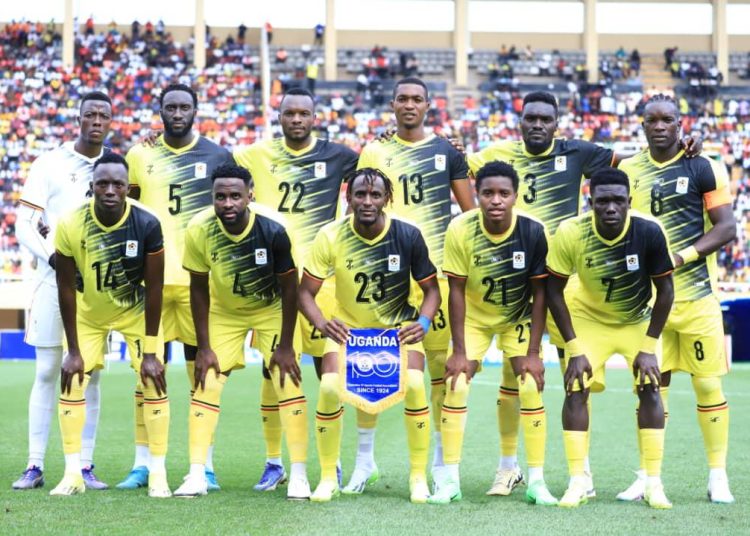Home » CHAN 2025
CHAN 2025: Crisis, Criticism, and the Future of the Event

The history of the African Nations Championship (CHAN 2025) already possesses one of the more challenging chapters. Set to be held in 2024, postponed to 2025 with the hopes of better preparation was a good sign, but things got complicated. From teams withdrawing to a subsequent challenge with the game date, CHAN 2025 might be unfolding under the global cloud of the unknown.
What Is CHAN and Why It Matters
Established by the Confederation of African Football (CAF) in 2009, CHAN exists to showcase talent based on local abilities. All players must be rostered on a league from their nation’s roster, meaning they play none in foreign leagues or international competitions.
This gives CHAN a unique identity and purpose, aimed at elevating local competitions and developing homegrown talent. FIFA seeks to boost the perception of local competition and use it as a developmental opportunity.
Why/Who Didn’t Qualify CHAN 2025?
Of the 54 national teams across the African continent, 16 opted not to qualify for CHAN 2025. Countries like Egypt, Tunisia, Algeria, and South Africa are also not in the running; yet, these are not countries denied entry into the tournament as they chose not to submit their squads.
In addition, Gabon, Gambia, Zimbabwe, Eritrea, and Somalia have chosen to step aside either because their federation suggests this isn’t the time based on their effort, or it suggests this isn’t the time based on lack of effort.
Lyes Ghariani, vice president of Tunisian giants Espérance, put it best: “We wouldn’t have been able to play… The CHAN involves stopping the championship for at least a month and therefore postponing its end.”
A Tournament That’s Not Worth It Anymore?
CHAN is increasingly being seen as a “minor” tournament. In 2023, with the consolidated football calendar already overloaded, CHAN is an additional burden. For the larger federations, it’s out of the discussion and no longer prioritized.
For example, Algeria officially announced that it will not compete. The official football federation, FAF, put out a statement that they would devote their resources to developmental youth teams and they would not be competing in CHAN.
Poor Media Coverage and Lack of Visibility
One of the biggest problems with CHAN is its lack of viewership. This is why platforms like BeIN Sports haven’t been so excited about massive viewership. CAF only live-streamed the last tournament on YouTube, and even then, it didn’t have great exposure. It’s tricky when there’s not enough consistent marketing to bring in sponsors; the arenas are filled with more empty seats than fans. When no one watches games, they’re attempting to avoid the headache of wanting to care.
A Different Tournament for Smaller Football Nations
CHAN still means something to smaller football nations. Countries that often fail to qualify for AFCON or the World Cup compete in CHAN and see it as a genuine international experience.
According to Nicolas Dupuis, coach of South Sudan, “For a country like South Sudan, CHAN is a real opportunity to participate in an international competition.” For these countries, CHAN isn’t just an opportunity, it’s a place to show their strength.
CHAN 2025 is a Precursor to AFCON 2027
Kenya, Uganda, and Tanzania are hosting CHAN 2025 but are also teaming up to host AFCON 2027. This year’s CHAN is a test run for operations and stadiums.
Uganda and Tanzania have at least one CAF-certified stadium. Kenya is still renovating two: Moi International Sports Centre (60,000 capacity) and Nyayo National Stadium (30,000 capacity).
There’s been talk that Kenya might lose its status without the completion of renovations on time, with Rwanda as the last-minute option. Nevertheless, Nicholas Musonye, head of the local organizing committee, insists the deadlines will be met.
Will CAF Reform the Format in Time?
CHAN has a future despite challenges. But it needs to diversify its approach. Many believe that changing the eligibility rules within the tournament would be beneficial. As of now, only players part of a country’s domestic league are allowed to play. The proposed adjustment would be to allow any player from any African league, regardless of citizenship, to be eligible.
This was something CAF considered, but took it back just months prior to the tournament in 2025, and many were disappointed. “It was a good idea,” Dupuis said, regarding the not-happening adjustment.
Will CHAN Continue?
CHAN 2025 might be the last time. If CAF is not going to pay attention to what is going on, lowering viewership, disinterest by the media, and restrictions on eligibility for players, this competition will fade away anyway.
The drop of teams this year should serve as a warning. Someone in his position, with such access to funds, should be able to make a change and assemble a national team to bring CHAN back to where it should be. Whether it’s increased tournament marketing, more eligibility for rostered players, greater tournament timelines, something has to be done.
Because if it’s not done, CHAN won’t just disappear, it may never be.




